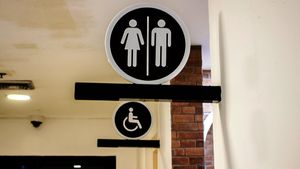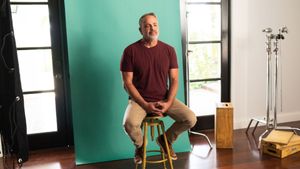On Monday, a Montana judge ruled in favor of young climate activists who argued that the state's excessive greenhouse gas emissions have caused substantial environmental damage.
Held v. Montana is the first case of its kind to reach trial: a climate change lawsuit brought forth by a group of young plaintiffs. Represented by Our Children's Trust, the group of 16 young Montanans argued that poor air quality had already harmed them as they grew up in the state, which violated their right to a "clean and healthful environment."
Leading the charge, 22-year-old Rikki Held first became interested in environmental science as a middle school student. She realized that coal-fueled power plant and oil and gas drilling locations in her area caused it to be ranked among the worst for air quality.
Held said that she joined the lawsuit to "ensure that basic human rights outlined in the Montana Constitution, such as the right to a clean and healthful environment, are upheld."
Judge Kathy Seeley ruled in favor of their case, saying that their rights were violated by a Montana Environmental Policy Act provision that prevented the state from considering climate impacts in resource extraction projects. Citing scientific evidence, the ruling presented a disproportionately large fuel-based economy in Montana, with per capita greenhouse gas emissions that are topped by only five other states.
The plaintiffs successfully connected greenhouse gas emissions to worsening air quality, and proved that it harmed their health as children. With their victory, the young Montanans join a growing group of young people across the world who play a major role in advocating for a more sustainable future.
For International Youth Day, the United Nations highlighted the diverse voices of other young advocates, like Saoirse Exton from Ireland. Exton is especially interested in how the global economics can be reshaped to promote sustainability, citing it as a very big issue because "there are a lot of people who are not interested to change our economic system." But change is possible, she said, so criticism of the current system should accompany optimism.
In September, Exton will be joined by other members of the Youth Advisory Group on Climate Change to deliver a message to world leaders at the UN Headquarters in New York.


















































